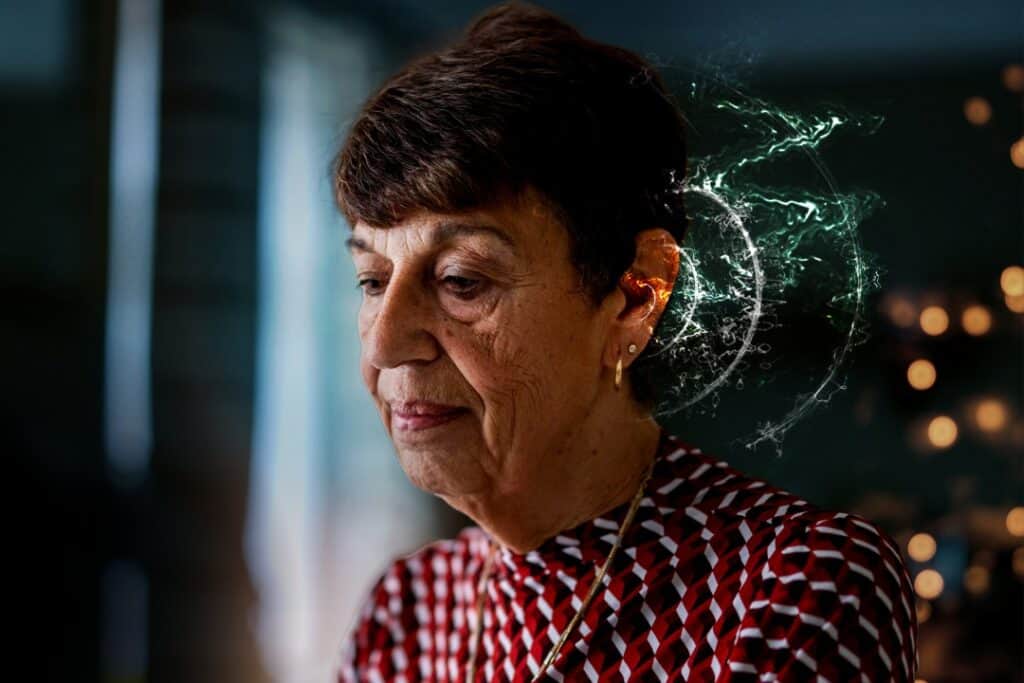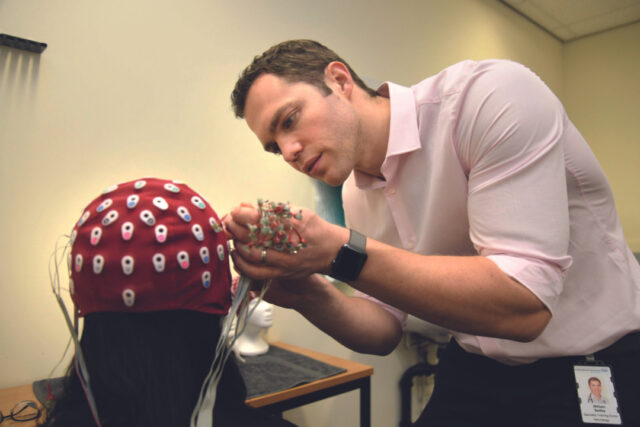We fund research to understand more about tinnitus so we can develop and find ways to treat it.
Our research goals

1 in 7 adults in the UK have tinnitus – a persistent sound in your ears like ringing or buzzing.
For many people it can cause serious anxiety and stress, in some cases leading to depression and sleep disorders.
There are a number of possible causes, but it’s been most linked to loud noise that can damage the ear and can cause changes to the brain.
We still don’t fully understand what causes tinnitus or how we can stop it. That’s why we need research to understand more about it and find ways to effectively treat it.
We fund research to:
- identify the causes of tinnitus
- understand more about the biology behind it
- develop and test strategies to treat it.
Read more about tinnitus and how you can manage it.
Our progress
Understanding the brain’s ‘volume control’
Our leading research in this area has helped to identify regions of the brain involved in tinnitus. These regions act like a ‘volume control’, amplifying signals from the ear when they are weak and turning activity down when they are strong.
Tinnitus may arise when the brain’s ‘volume control’ becomes set too high. It suggests that we might be able to treat tinnitus by developing drugs or other methods able to turn activity down in these parts of the brain.
Many researchers are now focusing on this ground-breaking concept in their work to develop treatments.
Find out more about our research achievements.
What we’re funding now
Improving animal models of tinnitus to speed up treatment development
- Researcher
- Dr Sonja Pyott
- Where
- University Medical Center Groningen, The Netherlands
Read more about Dr Sonja Pyott’s project
Re-training the tinnitus brain
- Researcher
- Professor Sven Vanneste
- Where
- Trinity College Dublin, Ireland
Read more about Professor Sven Vanneste’s project
Testing brain stimulation as a possible long-term treatment for tinnitus
- Researcher
- Dr Raj Shekhawat
- Where
- Flinders University, Australia
Read more about Dr Raj Shekhawat’s project.
Investigating changes in the brain linked to tinnitus
- Student
- Abishek Umashankar
- Where
- Newcastle University
Read more about Abishek Umashankar’s project.
Past projects we’ve funded
Chronic pain – how it might help us find a treatment for tinnitus
- Researcher
- Professor Peter McNaughton
- Where
- King’s College London
Read more about Professor Peter McNaughton’s project.
Can improving blood supply to the inner ear prevent hearing loss?
- Researcher
- Dr Dan Jagger
- Where
- King’s College London
Read more about Dr Dan Jagger’s project.
Get involved
